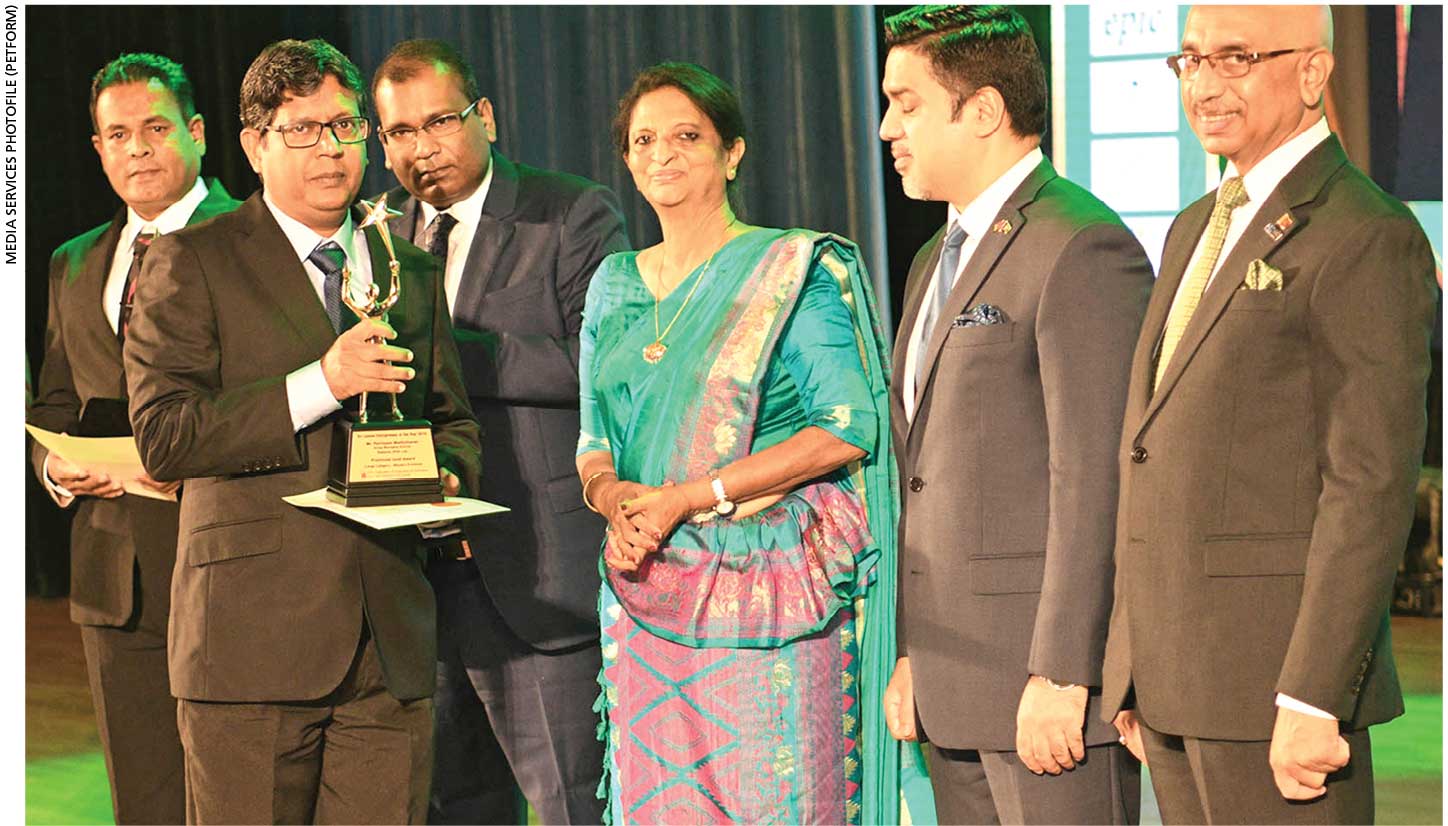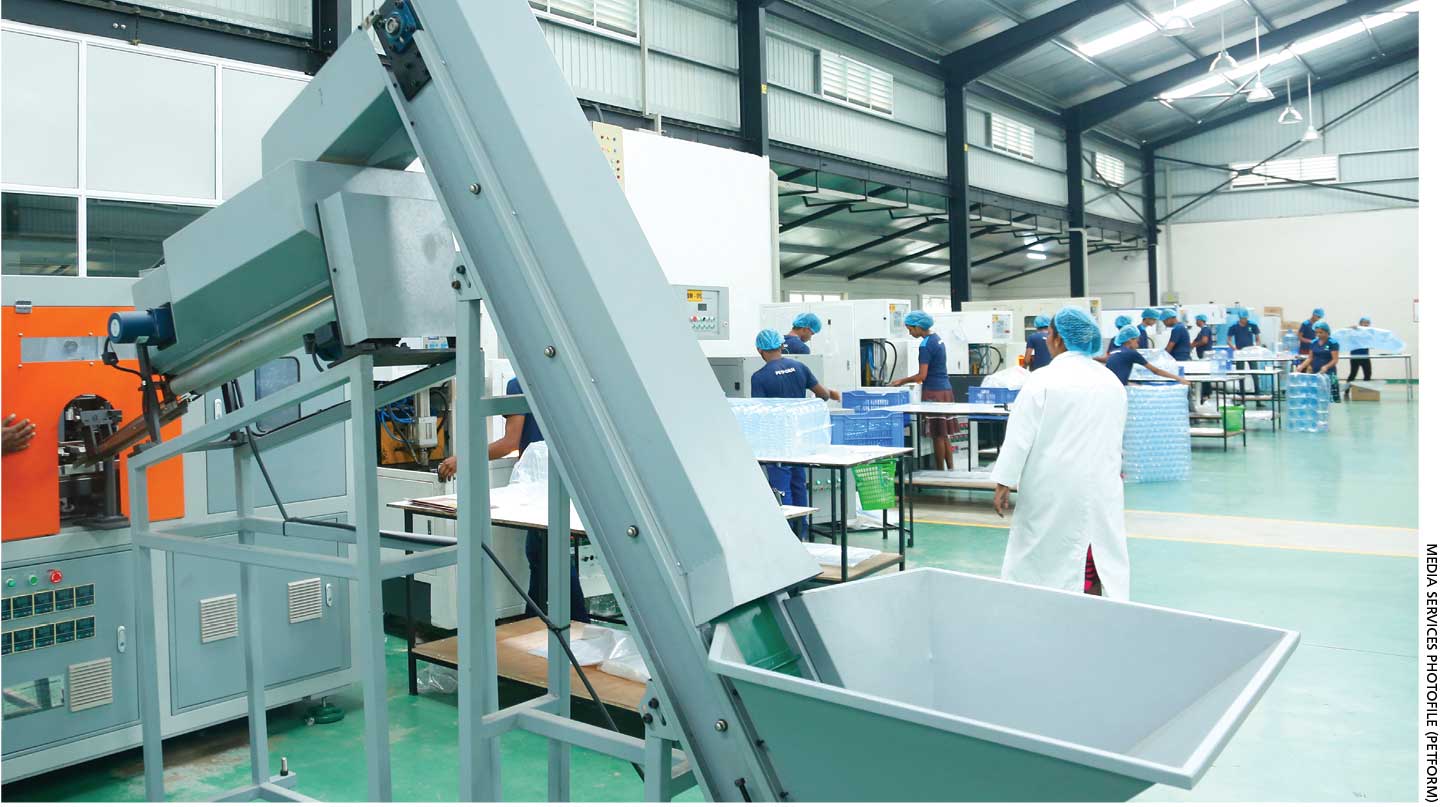PETFORM
Q: Do you believe that prevailing market conditions favour entrepreneurship?
 A: The present market climate does not favour entrepreneurs, in my view.
A: The present market climate does not favour entrepreneurs, in my view.
This is a period when the ease of importing raw materials and machinery will play a definitive role in the survival of organisations. As such, the government should look to improve the facilities that make this possible by attracting foreign direct investments (FDIs) and offering incentives to local investors.
Despite the testing business climate, I believe that Petform has formulated a solid corporate plan that enables the business – which is a leading packaging solutions provider – to adapt to the situation.
The COVID-19 pandemic brought about a new perspective for the company, as we began to discover new markets that were previously overlooked. It provided us with the opportunity to enhance the scope of the packaging materials that the organisation specialises in.
For example, hand sanitation is the present trend and we promptly capitalised on this demand.
The flip side of the pandemic has been the unpredictability that follows in its wake and it is difficult to predict whether the markets will thrive or collapse.
Q: Should entrepreneurs engage in social entrepreneurship?
A: I believe that social entrepreneurship is based on the recognition of social problems, and working towards achieving social change by employing entrepreneurial principles, processes and operations.
Petform has taken the necessary steps to recycle its unused raw materials and defective or damaged products to ensure that the organisation’s carbon footprint does not pose any environmental hazards.
Q: What are the latest trends and innovations that the company looks to leverage?
A: We aspire to streamline our organisational structure, and enforce stringent policy frameworks that are geared towards building staff morale, efficiency and productivity.
I believe that entrepreneurialism can be fostered by empowering and encouraging individuals in a knowledge-based and professional environment.
Petform gives prominence to concepts such as the 5S model and lean management principles. Our emphasis on the triple bottom line concept is an indication of society and the environment being taken into consideration in the company’s efforts to achieve financial excellence.
The pandemic has led to the acceleration of digitalisation, which has paved the way for people to avail themselves of products and services online. To this end, Petform has invested in digital platforms to enhance customer convenience further.
Meanwhile, the general approach to marketing a local product on the international stage was through participation in foreign exhibitions and forums. With digitalisation, organisations can simply showcase their wares at virtual events from the comfort of their own homelands.
Thereafter, it is a matter of establishing and developing a formidable logistics network and infrastructure that enables brands to gain global recognition.
Additionally, we hope to invest in automation due to the shortage of skilled labour in the local context.
 Q: How does Petform attempt to differentiate itself from the competition?
Q: How does Petform attempt to differentiate itself from the competition?
A: Petform is working to achieve a sustainable competitive advantage. Our customers know they can place their trust in our products due to the quality they’re accustomed to – regardless of the prices.
Our strategy to remain ahead of the curve lies in the company’s competitive intelligence. An organisation can easily adopt new trends and innovations, but analysing industry data and formulating appropriate strategies based on these insights can only be fulfilled by experienced entrepreneurs.
Additionally, our R&D team is committed to discovering and introducing new and innovative packaging designs to the market to ensure the company’s product portfolio does not become monotonous.
Q: What challenges do you expect to face going forward?
A: The sector is highly dependent on the price of crude oil in the global market. As a B2B business, Petform cannot expose its products to frequent price changes. There must be a gap between price changes and the business should absorb the losses during such periods.
The packaging sector is capital intensive. Organisations are expected to commit to their investments and see them through until ROIs are generated before moving on to the next endeavour.
 We have noticed the absence of a curriculum that educates people on the art of injection blow moulding. Furthermore, there is a mismatch between the salary expectations of skilled workers and margins that the sector is willing to accommodate. This leads to difficulties in recruiting skilled and experienced labour.
We have noticed the absence of a curriculum that educates people on the art of injection blow moulding. Furthermore, there is a mismatch between the salary expectations of skilled workers and margins that the sector is willing to accommodate. This leads to difficulties in recruiting skilled and experienced labour.
Q: And what are the company’s plans with regard to expansion?
A: Petform intends to become a versatile packaging solutions provider, and has plans to introduce extra high density polyethylene (HDPE), agrochemical, spices, tea and food packaging products to its portfolio.
Improving the culture of the workplace leads to reduced labour turnover, which makes for greater potential for future expansions. And as a company, we strive to be more innovative in meeting the emerging needs of the market.
Furthermore, Petform has a goal to establish a recycling plant for its polyethylene terephthalate (PET) packaging waste in the near future.




